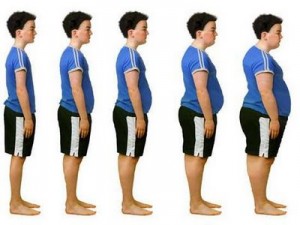 For decades, health and nutrition experts have built weight-loss programs around the commonly-accepted notion of balancing calories in and calories out. In other words, to lose weight, one simply needs to burn more calories than he eats. But there is growing evidence that’s only part of the equation for losing and maintaining a healthy weight.
For decades, health and nutrition experts have built weight-loss programs around the commonly-accepted notion of balancing calories in and calories out. In other words, to lose weight, one simply needs to burn more calories than he eats. But there is growing evidence that’s only part of the equation for losing and maintaining a healthy weight.
The Journal of the American Medical Association published a fascinating article last month that describes the biological drivers of weight gain. While it’s not a systematic review, the article references the evidence on the causes of weight gain and obesity. And it raises the questions of whether weight loss programs have been treating a symptom, rather than the cause, of obesity.
The New York Times summed up the question perfectly in an opinion piece on the JAMA article: “What if it’s not overeating that causes us to get fat, but the process of getting fatter that causes us to overeat?”
This issue is notable for two reasons. First, it raises an alternative and compelling lens through which we can view healthy eating: the western diet has triggered fat cells in our bodies to store extra calories. This means that fewer calories are available for our bodies to use as energy, so we feel more hungry. Then we eat more, and our bodies store even more of those extra calories as fat. On the flip side, reducing the amount of food we eat sends a signal to our bodies to store even more calories as fat, and we feel even hungrier. You can see how this mechanism could lead to the fad dieting that is so common in developed nations.
The issue is also notable for another reason: It’s a great example of using the available evidence to inspire new research. While the JAMA article isn’t a systematic review, it looks at the body of evidence on the topic of weight loss – from biological studies of the metabolism to large scale diet studies – to develop a hypothesis and ask new questions. Building new research on existing evidence is an excellent way to focus resources and delve into new areas. Hopefully ten years down the road, we’ll have enough evidence to publish a systematic review on new weight loss methods that can guide millions of adults to a healthier lifestyle.
Until then, what’s the best way to diet and lose weight? Unfortunately, we don’t know the answer yet. But a common thread that comes up in most of the research on weight loss is eating a varied diet that includes plenty of fresh fruits and vegetables. Is counting calories meaningless? Probably not. But, according to the JAMA article, the quality of your diet likely has an important impact on your weight.



“What if it’s not overeating that causes us to get fat, but the process of getting fatter that causes us to overeat?”
That really got me. It sounds brilliantly simple and possible. But I have a question… there are so many obese people around the world, specially in the United States, and people can’t actually find the main cause? Really?
Every now and then there is someone finding a new cure for obesity and a new pill pops up on the market. What is all that? It’s not only a calorie balance, but the exercise and eating healthy. Yes, eating healthy is a point of view. Everyone will tell you a different story, but everyone would agree that lot’s of sweets and junk food are not a healthy meal.
I don’t know the science behind it, but my sister has started a weight loss system and there are a few weird facts that popped up ever since.
So, my sister is pretty large from the waist down. She has a few health conditions that make it harder for her to lose weight and get in shape. It’s been bogging her down for years to come, before she finally decided to opt for professional help.
She now goes to the gym almost everyday and has an instructor, who created a diet for her. I honestly can’t remember the whole diet, but it’s about eating every three hours with small portions of chicken and vegetables. It’s pretty strict and at first, my sister was constantly hungry and felt weak. But pretty soon, she got used to the point of not only feeling well fed after a meal, but sometimes rejecting meals due to not being hungry.
While following this diet she did remarkable in losing weight (combined with some training) – 15 pounds for two and a half weeks. But when she started to skip a meal here and there she immediately gained a pound or two.
I think this supports your statement that when you stop eating, your body reacts and stores as much as it can as reserves for the future.
P.S. If you want, I can ask for the exact diet and send it over email, but it’s custom specifically to my sister and her condition.